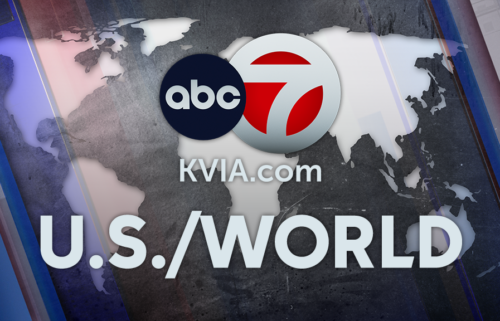Brexit breakthrough ‘unlikely’ on eve of crucial summit
UK Prime Minister Boris Johnson’s hopes of securing a Brexit deal with the European Union may be tantalizingly close but the final breakthrough failed to emerge Wednesday night.
A senior UK government source told CNN that an agreement over Brexit was “unlikely” to be reached on Wednesday as negotiators continued to work through the night to hammer out outstanding issues on the Withdrawal Agreement.
The source added that Downing Street was “guiding operationally not to expect anything tonight.”
Johnson will be hoping that a revised deal can be reached with negotiators before a crucial two-day EU summit begins Thursday.
Despite the immediate setback, sources told CNN that the British government remained positive that a deal was close, with only a few issues left to resolve.
“They have done important progress but they don’t quite have a consolidated legal text which is what they are still working on in the next hours,” the EU official said.
“They will try and close out the text in the next few hours and there is still the possibility of an agreed text they can present at the summit,” the source added. “The EU member states will need some time to look through it.”
Johnson — who continues to insist that Britain will leave the EU in just 15 days, on October 31 — likened the situation to climbing Mount Everest.
Speaking briefly a meeting of the 1922 Committee in London, the Prime Minister reportedly said, “We are not quite at the summit, we are at the Hillary step,” PA news agency reported, citing leading Brexiteer Mark Francois, who was in attendance.
Francois said Johnson also added: “The summit is not far but at the moment there is still cloud around the summit.”
Johnson’s official spokesman earlier said “talks remain constructive but there is more work to do,” according to PA.
Latest stumbling block
As discussions continued behind closed doors in Brussels, belief in whether a deal could be struck flipped between caution and confidence.
With the clock ticking, officials were racing to find a resolution to the deadlocked process. But the Northern Irish Democratic Unionist Party (DUP) — the hardline unionist party that has been propping up Johnson’s minority government in London — didn’t appear to be on board with the PM’s latest plan. The latest stumbling block, at least as it relates to the DUP, was around the issue of “consent.”
According to reports, the plan put forward by Johnson gives the Northern Ireland Assembly the chance to vote every few years on whether to continue to endorse the hybrid customs arrangements for the region.
In the delicate balance of the Good Friday Agreement, which brought peace to Northern Ireland after decades of conflict, a simple majority in the assembly isn’t always enough on key issues. Both sides of the sectarian divide in Northern Ireland must agree.
DUP leader Arlene Foster shut down rumors her party had accepted the mechanism for getting “consent,” writing on Twitter that discussions were ongoing. But she warned that any agreement “needs to be a sensible deal which unionists and nationalists can support.”
Also on Wednesday, some European leaders had expressed hope that negotiations might have been concluded by the end of the day.
French President Emmanuel Macron and German Chancellor Angela Merkel certainly seemed more optimistic Wednesday evening during a joint press conference in Toulouse, France.
Macron, who has often taken a tougher stance on Brexit negotiations, told reporters: “I want to believe that an agreement is being finalized and we can talk about it tomorrow at the European Council summit.”
He added: “We would like to endorse an agreement that I hope will be found in the next few hours. The feedback we’re getting today is positive.”
Merkel, for her part, said she felt discussions were “on the home stretch” before she too expressed hope of a successful agreement.
Down to the wire
Even if Johnson is able to secure a deal, there may be insufficient time to pass it before the clock runs out.
Any deal that he brings back to London must still be ratified by a divided House of Commons. His predecessor, Theresa May, made three attempts that were all ultimately defeated by UK lawmakers.
And with deal negotiations coming down to the wire, Johnson faces yet another deadline on Saturday: To prevent the country from crashing out of the EU without a deal, Parliament last month passed a law, known as the Benn Act, that requires the Prime Minister to ask for a delay if no deal is agreed by 11 p.m. (6 p.m. ET) on Saturday.
Asking for yet another extension would be at odds with Johnson’s position. He once said he’d rather be “dead in a ditch” than make that request — but not doing so would be a clear violation of a law.
On Wednesday evening, a motion was put forward for Parliament to sit extraordinarily on Saturday from 9:30 a.m. (4:30 a.m ET) until 2 p.m (9 a.m. ET) — when they could potentially vote for any deal before the Benn Act deadline closes in.
According to Boris Johnson’s official spokesman, the motion “simply sets out the intention for Parliament to sit on Saturday,” and would involve both the House of Commons and House of Lords, PA reported.
If approved, it would be the first time in decades that a special weekend session has been held.


